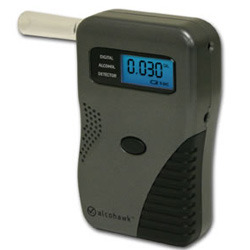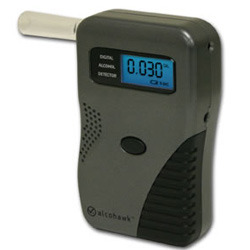I’d like to begin by stating that this article in no way condones drunk driving, nor is meant to encourage it. I have close friends that a drunk driver almost killed, as well some whom have caused accidents. Drunk driving should be taken very seriously, with harsh penalties to discourage it. That said, I believe punishment should always be fair, and never worse than the actual danger one posed to society.
What is BAC? It stands for Blood Alcohol Concentration, which is usually measured using a breathalyzer, the thing police have you blow into. It measures the amount of alcohol in your breath, which is assumed to be proportionate to the amount in your blood. A reading of 0.01, or “point oh one,” is saying that your blood contains 0.01% alcohol, and that the other 99.99% is blood. There are so many factors that may cause a breathalyzer’s reading to be inaccurate that I’ll be devoting an entire article to the subject later.
In Michigan, adults driving with a BAC at or over 0.08% are impaired, while a BAC over 0.17% is super drunk, which greatly increases the penalties. These are just numbers, though, and only tells the amount of alcohol in someone, not how much it’s affecting them.
Alcohol affects different people in different ways, and even the setting it’s consumed in can change how much impairment it causes. For the sake of this discussion, we’ll assume BAC was determined by a blood sample, as that measurement, unlike breathalyzers, is accurate.
Mixing alcohol with other drugs, especially downers, such as barbiturates, benzodiazepines, and even marijuana will cause more impairment than taking either drug alone, so a breathalyzer result measuring only alcohol will underestimate how impaired the driver is. The same could be said of being sleepy while driving.
Age also plays a factor. People under 21 are less experienced drivers, and worse at multitasking. Because of this, they have a much greater risk of crashing their car after drinking. A 19 year old with a 0.06% BAC is much more dangerous to themselves and others than a 50 year old with a 0.06% BAC.
Chronic alcohol use leads to physical tolerance to its effects. Heavy drinkers metabolize alcohol more quickly, and they also change the gene expression in their brains, causing it to affect them less. I’ve personally seen a person in the hospital with a BAC of 0.40%, which is often lethal, but he walked around just fine, and didn’t slur his speech at all, which was amazing. BAC in heavy drinkers underestimates their impairment.
There is also learned tolerance, which is when someone practices a task while drunk, and then can perform the task with less impairment while intoxicated. Someone without a physical tolerance to alcohol may be able to perform specific tasks, like shooting pool, throwing darts, or even driving a car, with less impairment than should be expected. Here, a BAC level would overestimate impairment in alcohol-trained skills, while be accurate for everything else.
Environment-dependent tolerance is when someone drinks in the same setting consistently, like a bar, and it less affected by alcohol than they would be in another setting, such as an office. The body picks up on cues it associates with drinking, and compensates for the expected influx of alcohol. Because of this, the same person with the same BAC may be less impaired at a bar they frequent than they would be drinking somewhere else.
Finally, when performing familiar actions, such as driving familiar roads, riding a bike, or playing a guitar, a person will be less impaired than they would be if doing something they were unfamiliar with. Somewhat fortunately, a chronically impaired driver who always takes the same roads home from their favorite bar is less impaired at that task due to its familiarity.
So, how can we determine actual impairment, if BAC isn’t a perfect measurement, and there are so many confusing variables? My solution would be to have the accused person perform a driving test, under strict supervision, on a closed course, at the same BAC they were caught having. If they perform well enough that no impairment is found, then they should be found innocent, or at least be penalized much less. If they perform even worse, then they should be punished more. This may sound impractical, but the sum of a person’s activity isn’t a single BAC reading. The totality of a case must be considered, and appropriate punishments given for justice to be served.



